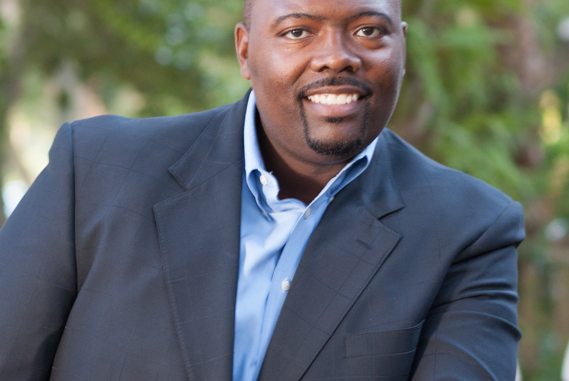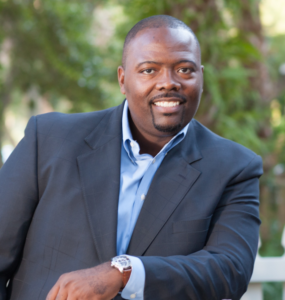

This Black History Month I have decided that it is more important than ever that we do more than reflect on our past. As African Americans we also need to critically evaluate our present economic and social status in the United States in relation to our past. In other words, what tangible gains have we made since slavery, the Reconstruction Era and Civil Rights Movement?
“Where justice is denied, where poverty is enforced, where ignorance prevails, and where any one class is made to feel that society is in an organized conspiracy to oppress, rob, and degrade them, neither persons nor property will be safe,’ said one of the greatest American civil rights activist ever, Frederick Douglas.
It almost sounds like Douglas was predicting the Trump presidency – especially where poverty is enforced and ignorance prevails.
But this article will not be about The Donald and his shenanigans, but I really want to start this month focusing on black men and the roles we play in America. Yeah, I have written about this before, but sometimes you have to preach the same sermon until it settles in.
The first and perhaps most important role is as fathers. James Baldwin once said, “Children have never been very good at listening to their elders, but they have never failed to imitate them.”
We cannot afford to continue allowing ours sons to grow up without fathers or strong father figures in their lives. There is a direct correlation between single mother households and the number of black men in prison that grew up without their fathers around. Black men have to change that narrative.
Douglas also famously said, “It is easier to build strong children than to repair broken men.” Amen.
Michael Fletcher is a writer with the Washington Post and wrote an article titled, “At the Corner of Progress and Peril” some eight years ago.
The piece centered around one question, “What does it mean to be a black man?” Arthur Ashe said, “Being a black man in America is like having another job.”
Ashe was talking about the additional life obstacles many blacks faced during his era. And sure there are still many challenges today, but nowhere near as many as those faced by people like Arthur Ashe.
Here is a critical question – with exceptional leaders like Frederick Douglas, W.E.B. Dubois, A. Phillip Randolph, Harriet Tubman, Martin Luther King and Barbara Jordan laying the foundation for black equity and opportunity, why have so many Black men decided to take a back seat. And I am not just talking about taking a back seat in this country. I am talking about taking a back seat in their homes, and not playing a role in their children’s lives and essentially not being the leaders that they should be?
The most profound statement made by Fletcher was, “Being a black man in America can mean inhabiting a border area between possibility and peril.” Or as James Comer once said, “Being black in America is often like playing your home games on your opponent’s court.”
You can still win the game when you play on your opponent’s court, but you have to work a little harder to win. Unfortunately, not enough young black males realize to the need to work harder to be successful.
Sometimes it hurts to turn on the light and look at the man in the mirror and that what we have to do. Fletcher’s column also talked about “The dueling realities of our history – steady progress and devastating setbacks – continue to burden many black men in ways that are sometimes difficult to explain.” I can personally attest to that dueling reality.
My editor will say, well Reggie what can we do to fix the problem? And of course I don’t have all of the answers, but we really have to figure out a why to install a strong sense of pride back into our black males at a young age.
Education and constant reinforcement is the key. It’s time for us to start being the mentors and leaders that we should be. And we have to stop using the racism crutch, yes, sometimes there are discriminatory issues, but as Arthur Ashe once said, “Racism is not an excuse to not do the best you can.”
Clearly there are thousand of well-educated successful black men so I am not trying to paint a story of complete doom and gloom.
Black men are excelling in corporate America and through entrepreneurship. There are African American men who are slowly trying to change the way black males are often times viewed. Bernard J. Tyson, the black CEO of Kaiser Permanente, said in an article in Fortune, “I have the opportunity and the obligation to change the narrative around race.”
But the challenge for Blacks in general is not intellectualism or talent based – it’s opportunity.
According to a corporate diversity survey released last June by the office of Sen. Bob Menendez, a New Jersey Democrat, black men and women account for only 4.7 percent of executive team members in the Fortune 100 (the top 100 U.S. companies by revenue), a share that hasn’t budged since the survey was first conducted in 2011.
How do we increase those numbers, change the negative socio-economic data surrounding black men and even alter perceptions? I certainly don’t have all of the answers, but we have to start having positive dialogue followed by real action on this issue. And who is going to lead the charge? Not sure, but I would like to nominate President Obama to take the helm.
But I can’t blame him for not wanting to come out of retirement for such a daunting task.
Signing off from a Black History Program rehearsal,
Reggie Fullwood

Be the first to comment